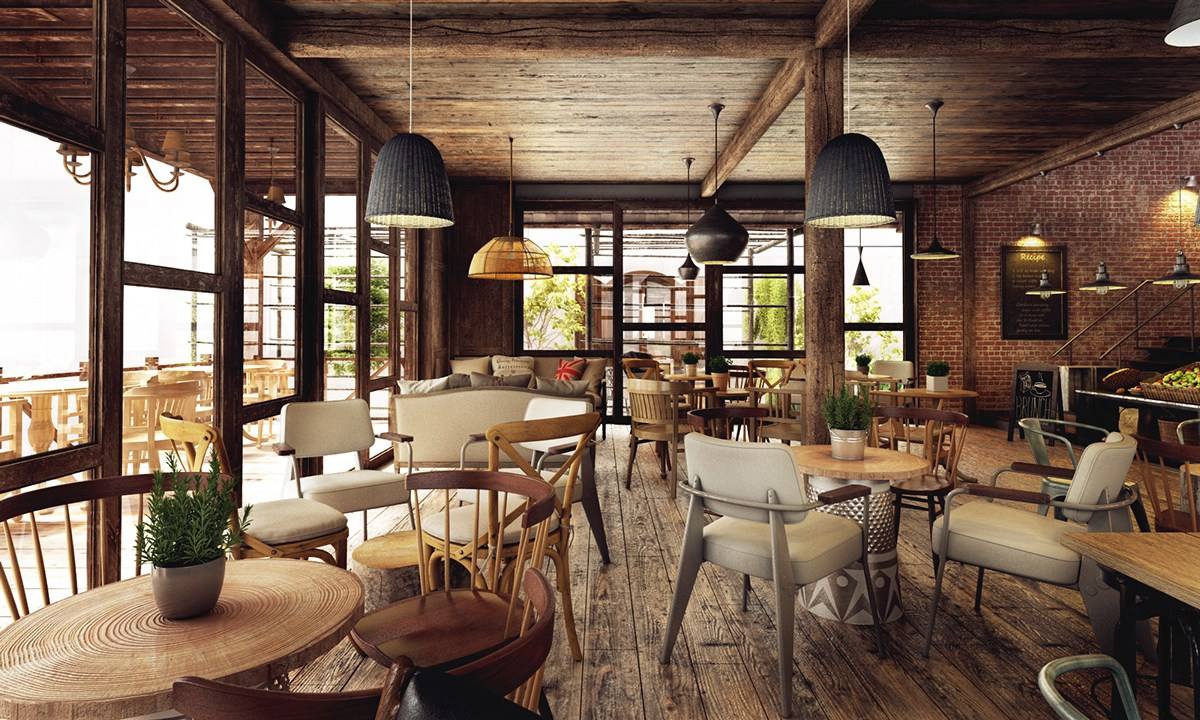A cafe without wi-fi. When you walk in, it's like a big family party.
Follow the caf é (Wechat official account vdailycom) and found that Beautiful Cafe opened a small shop of its own.
-Segmentation line-
Over the past few years, as soon as I walk into the cafe, it is not difficult to find many people staring at their laptops and focusing on their work. Most cafes provide wireless Internet service for the convenience of their guests. When ordering food, they ask, "what is the wi-fi password?" it must have become a new habit for many people.
With this change, scenes of people skidding their mobile phones and using pens in cafes are becoming more and more frequent, and there are even few voices chatting and discussing in cafes, in exchange for the sound of keystrokes in silence.
In response to this change, Annie Kostiner and her husband Lewis opened the coffee shop Kibbitznest, hoping to "draw attention to the use of 3C products and the imbalance in interpersonal relationships," BBC reported.

Kostiner says customers can find a place to take a break from the 3C screen for a while and set them free. The guest told her, "I'm so glad you opened this shop." "
Like a backlash against the lives of modern Phubber and laptop users, similar "wi-fi-free cafes" have appeared in the United States, London, Vancouver and other places.
"people are tired of staring at their phones," Joshua Mullenax said. When he went to Kibbitznest to use his computer in a cafe, he was told there was no Wi-Fi. He gladly accepted it, saying that although it was impractical, it was a good idea.
Cafes like Kibbitznest pursue the original purpose of coffee shops-as a space for people to discuss and debate and promote social communication. In the beginning, the coffee shop was the "third space" after the home and office, where people could chat and spend time with friends.
At the August First Cafe of Jodi Whalen and her husband Phil Merrick, they witnessed the estranged relationship between their guests. Many people come in and turn on their laptops and stick to the screen for hours.
"when we opened the August First Cafe, we didn't expect it to be a quiet place to walk through the gate. "said Whalen, the shop owner.
So in 2012, they cancelled the wireless service, and in 2014, they banned the use of pen and electricity in the store. It is true that there was pressure at the beginning of the change, and the guests rebounded (mostly from Internet messages), but apart from that, the reaction from other guests was very positive. Moreover, the performance of the store has increased by 20%.
Even so, it is an indisputable fact that many people want to work in a coffee shop instead of chatting. According to Global Workplace Analytics, home workers in the United States (most work in cafes because the home environment may be too disturbing.) It has grown by 103% since 2005, representing at least half of the 3.7 million people who work remotely, excluding the self-employed-22% of them work from home.
This is a global trend. According to Ipsos / Reuters, about 1/5 people around the world work from home. This mode of work is particularly popular in Latin America, Asia and the Middle East. But it is not so common in Hungary, Germany, Sweden, France, Italy, Canada and other places.
Jeff Excell believes that a cafe should be a place to provide guests with an experience. He and his wife, Lauren Cully, co-run the Fox in the Snow Cafe in Ohio, which has not provided Wi-Fi since it opened.
Excell says that nowadays everything can be bought at home, and it is not difficult to live in isolation from the rest of the world, so in this context, it is necessary to interact with people when spending in a coffee shop.
"I want to create a vibrant cafe. As soon as I walked in, it was like a big family party. "he said.
Excell and Culley deliberately hire baristas who are good at chatting, and they also lower the height of the bar so that guests don't feel estranged, and the pastry names and price tags are deliberately put away, giving guests a chance to ask more questions. Today's Fox in the Snow attracts guests from many different ethnic groups, such as college students, parents, children, civil servants and so on.
There is a need for space to take people offline for a while, Excell said. "there is something precious about sincere conversations between people. "
Ray Oldenburg, who proposed the concept of "third space" in 1989, said that places like cafes that can "get together casually" play a key role in a healthy human civilization. Without such places, the so-called "sense of community" will disappear. As social animals, we need to interact with people, and these wi-fi-free cafes just meet that demand.
I have seen two people sitting face to face in a cafe, each sliding their mobile phones and playing on their own computers, without talking to each other several times in a few hours. Cafes without wireless networks in this article seem to do the opposite, creating an offline space that allows people to stay away from the shackles of technology and the Internet for a while. What is most curious is why the performance of cafes that do not provide Internet access will grow upward. What do you think is the reason behind it?
Important Notice :
前街咖啡 FrontStreet Coffee has moved to new addredd:
FrontStreet Coffee Address: 315,Donghua East Road,GuangZhou
Tel:020 38364473
- Prev

Is there more caffeine in deep roasting or light roasting?
Coffee is almost an indispensable companion for modern people in the morning. Without caffeine, the body does not seem to have entered the awake mode. But which kind of coffee bean has more caffeine? Let's take a look at the Tasting Table report. Anyone, whether it's going through a sleepless night, or being so mentally deficient that he wants to fall asleep, knows how to drink that mouthful too strong.
- Next

Will Italy, with a deep coffee culture, protest when Starbucks marches into Italy?
Starbucks, a well-known multinational, recently announced with ambition that it would open 200 to 300 stores in Italy if all went well. Next summer, Starbucks will open its first stores in Milan and Rome, followed by four more in those two cities, with 100 stores expected to be displayed in Italy by 2023, The Telegraph reported. "if the market reacts well.
Related
- What documents do you need to go through to open a coffee shop? coffee shop coffee shop certificate processing process
- How to purchase Coffee beans in small Cafe how to choose a suitable supplier for domestic Coffee supply Company
- How to drink Starbucks Fragrance White Coffee? how to make Australian White Coffee? what Italian coffee beans are recommended?
- The Story of Flora Coffee: the name of Flora Coffee Bean and the implication of the Flowers on Florna Coffee
- How much does a cup of coffee cost? How much is the profit of a cup of coffee? What is the profit of the coffee shop in a year?
- Yunnan small Coffee, known as "fragrant Coffee", introduces the characteristics of Alpine Arabica Coffee producing areas in Yunnan, China
- 2023 latest Starbucks full menu price list how much is a cup of Starbucks coffee what is better to drink the most popular hot and cold drinks recommended
- Starbucks different kinds of Coffee Price list Starbucks menu 2023 Top Ten Best drinks in Starbucks
- Starbucks Spring praise Comprehensive matching Coffee Bean theme Story Packaging implication and taste description
- The cost of a cup of coffee latte American coffee cost price and selling price

